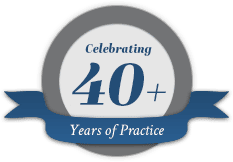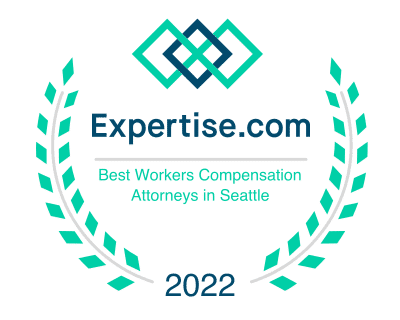Car, Truck, and Pedestrian Accidents. 20 Things You Need to Know Now!
Serious injuries and wrecked cars are not much fun. Accidents cause problems. Accidents cost money. Accidents may have you asking questions.
What Is A Car Accident Injury Claim?
Auto accidents can lead to personal injury and property damage. If you are injured in your auto accident, you may be able to make both a personal injury claim and a property damage claim.
A personal injury claim is for bodily injury, medical expenses, disability, lost wages, pain, suffering, inconvenience and other losses. Your physical injuries and mental health problems after an accident are called personal injuries. Personal injury claims are generally settled separately from, and much later than, your auto property damage claim.
A property damage claim is for your vehicle, it’s contents, and other property interests.
Don’t Settle Too Early
Settle your personal injury claim after you complete medical treatment and you know the extent of your injuries and other losses.
Knowing the value of what you have lost (bodily injury, medical expense, disability, lost wages, pain, suffering, and inconvenience) will help you figure out what your claim is worth. Most claims should not be settled until after your doctor has written his final report. If you settle too early or without knowing the value of your claim, you lose money.
What is My Car Accident Claim Worth in Seattle?
A personal injury claim is for bodily injury, medical expenses, disability, lost wages, pain, suffering, inconvenience and other losses.
- Medical Care – the quality and quantity of reasonable and necessary medical care makes a difference.
- Liability – who was how much at fault?
- Wage Loss – both past and future.
- Insurance – read your insurance policy to find the coverage you have. Look to the at fault driver for insurance. Without any insurance your claim may be worthless.
- Disability and Impairment – the seriousness of your injuries and extent of your medical recovery.
- Who are you? Are you likable and believable? It makes a difference.
- How good are your witnesses? The more credible and believable the better.
- Your attorney. Get a good one.
- Documentation you have prepared is important evidence for your claim, including photos, videos, a diary, medical records, medical reports, accident reconstruction etc.
- Circumstances particular to your case should be considered. Document how the auto accident injuries affect your life.
All these factors are important. Together they will add up to the value of your personal injury case.
Automobile Damage
Auto and other property damage claims can be taken care of early, often within weeks of the auto accident. The smart plan is to settle your auto damage claim early to save on expenses. A rental car or a car towed to storage costs money. Get your vehicle damage settled, get your car back on the road, and then settle your personal injury claim later.
How to Get Your Car Back on the Road
Insurance should take care of your auto damage if:
- the other party is responsible and has liability insurance, or
- if you have collision insurance.
- if there is no insurance then there is a problem
Towing and storage are part of a property damage claim. Be careful of storage fees because they can add up quickly. The insurance company of the at fault driver is liable for towing and continued storage, until they make a reasonable offer for your vehicle and other property damage. After an insurance company makes a fair offer, they usually won’t pay additional storage charges, so the towing and storage company will then look to you for payment.
You may be entitled to a rental vehicle from the date of the accident until the at fault drivers insurance company makes a fair offer to repair or replace your vehicle.
What is Your Car Worth?
Insurance companies are obligated to repair or replace your car, at their option:
- If your car is totaled, then you are entitled to fair market value for your car. Market value is measured by blue book values, the sale price of similar cars, etc. A little homework here will save you some money.
- If your car can be repaired, for less than its market value, then repair is the insurance company’s likely choice. Get a good shop to do the work and do not sign off on it until you are happy with the repair job. If you wish, you can get the money for the car damages but not repair your car.
What else needs to be done? Get a good set of pictures that will help prove your case, before you let the evidence disappear.
The amount of money you should be paid for your car and other property damage from the other guy’s liability insurance also depends on:
- who is how much at fault and
- the cost to repair or replace the vehicle (whichever is less).
The amount of money you should be paid for your car and other property damage from your insurance company if you have collision and comprehensive coverage is the amount of your market value loss.
Who owns your car? Some people own their car. Some people don’t, rather the bank or finance company owns it and these persons just make the payments. If the car is owned by the bank or finance company and it’s totaled, the bank probably has a lien, so they get paid first, and you get paid your equity second. If you owe more on your car than it’s worth, then you have no equity, rather you are underwater with it. If you total an underwater car, it could be that you lose the car plus you owe your bank the difference between what you can get the insurance company to pay and what you owe. Harsh but true.
Statute of Limitations (SOL) – Time Limits on Your Claim
After an accident you have a limited amount of time to make a claim for your losses. The time deadline within which you must settle or file a lawsuit is called the statute of limitations (SOL). If you miss the statute of limitations, then you lose your claim. The length of the SOL varies among states and by type of claim. For accident and injury claims caused by negligence, in Washington State the statute of limitations is usually three years. The same claim against your own insurance company may be six years. Intentional injuries in Washington State usually have a two-year SOL. Job injuries in Washington State, usually have a one-year statute of limitations. Occupational disease claims have a SOL of two years or more. Other claims will have other deadlines some of them very short. Don’t procrastinate or fool around with this. Don’t guess about your statute of limitations. Get specific legal advice about your particular time deadlines. Wait too long and you lose your rights.
Insurance Companies May Have You Asking Questions
Questions such as: why is the insurance company giving me the run around? Why is insurance information so difficult to understand? Questions about what is this insurance limits of liability? Are you wondering who pays the medical bills. Should you give a recorded statement? What to do if the car accident is a hit and run or caused by a drunk driver? Will the insurance company pay me?
Insurance — The Good News
Insurance companies pay money to injured persons if you present them with an organized and convincing claim for your losses. Look for all available policies which may apply. The other driver’s liability insurance, one of your insurance policies, or the insurance of other responsible parties.
Depending on the facts and the insurance policy in question, insurance may protect the policy owner, drivers with permission, passengers, family members, pedestrians, victims, and others. Many policies contain some or all of the following coverage. Read your policy and discover the insurance policy of the other driver to see what coverage you have:
- Medical payments – for accident related medical and treatment bills.
- PIP/personal injury protection – Personal Injury Protection (PIP). This is optional insurance which covers, within a policy’s specified limits, the medical, hospital and funeral expenses of the insured, others in his vehicles, and pedestrians struck by him. In Washington State, you can choose limits of either $10,000 or $35,000. Payment is limited to the specified amount per person within either 1 or 3 years of the covered accident. Read your policy. PIP can also include:
- Income Continuation – recovers lost wages for up to a year. 85% of your weekly income up to $200 per week or $700 per week (whichever is less).
- Substitute Services – help performing household or other tasks due to accident-related injuries. $40 per day / $200 week / Max $5,000 / Up to a Year from the Incident.
- Funeral Expenses – $2,000.
Liability Insurance
Liability is legal fault. Liability insurance is insurance protection for a person’s legal fault. Washington State law requires that all drivers have liability insurance. Individuals involved in motor vehicle accidents’ (MVA’s) can be held legally at fault and thus financially liable for the consequences of an accident, including property damage, injuries to passengers and drivers, and fatalities. Severely injured persons or families of fatality victims may seek damages in civil court, often for well in excess of the value of insurance. Fault can lie entirely with one person or may be spread among several people. Liability insurance protects the insured if they are at fault. Liability insurance pays injured persons for their bodily injury and property damage, up to the amount of the specified liability coverage.
Collision Insurance
An optional insurance coverage for an insured’s vehicle that is involved in an accident, subject to a deductible. It provides payments to repair the damaged vehicle or pays the market value of the vehicle if that value is less than the estimated repair bill.
Comprehensive Insurance
(a.k.a. – Other Than Collision) provides insurance coverage, subject to a deductible, for an insured’s vehicle that is damaged by incidents that are not considered a collision. For example, fire, theft (or attempted theft), vandalism, weather, or impacts with animals are types of Comprehensive losses.
UM/UIM Insurance
Uninsured/underinsured Motorist coverage (UM/UIM) provides coverage for the insured if an at-fault party either does not have insurance (UM), or does not have enough insurance (UIM).
Excess/Umbrella Insurance
This coverage is optional. It provides an extra layer of insurance coverage, if there is not enough underlying insurance to compensate the injured.
Insurance — The Bad News
Most insurance adjusters consider it their job to pressure or charm you into settling too early and for less than a fair amount. It is the insurance adjuster’s job to build a case against you, and they will actually ask you to help them do this, even if the car accident is not your fault. Be wary if they want a recorded statement, ask you to load their app on your phone, or ask you to sign their forms. They are looking for information to lower the value of your case. They can and often will, hire private investigators to spy on injured persons. They hire aggressive attorneys. Every time they talk with you, they are evaluating your injuries. They will not pay you if they think they can get away with it. If they offer you money, chances are that your claim is worth more. If your insurance company demands full subrogation (return of their money when you settle with the other insurance company), watch out. The amount they demand may not be correct. Unscrupulous insurance adjusters are the number one reason injured persons hire attorneys.
No Insurance
Driving without insurance is a crime. However, if you didn’t get a ticket and are not at fault for the accident then likely:
- You may or may not get a ticket in the mail
- You should buy insurance for the future.
- You are still eligible to collect from the at fault driver if he has insurance or assets.
If the other driver is at fault and they have no insurance, then they need to have lots of assets or you need to have your own UIM coverage, otherwise your case against them may be difficult and possibly worthless.
Driver’s License Suspension.
In Washington State, if the at fault driver injured someone or caused at least $700 in damages and is uninsured, then the injured person can have the Department of Licensing suspend the driver’s license of the uninsured at fault driver or uninsured registered vehicle owner.
So, if the other driver is the at fault driver, and they have no insurance and no assets, and if you don’t have UIM coverage of your own, then you can make that at fault driver ride the bus until they figure out how to pay you. Here is the link to get started WA State Licensing: License Suspensions- Failure to Pay Accident Damages.
Medical Care/Medical Bills
Medical care for your injuries is very important. Getting good medical care can make the difference between a good and a bad outcome for your case.
Personal Injury Protection
You may be entitled to have reasonable and necessary medical care paid for in the final settlement. However, entitlement is not the same as getting the bills paid. Most doctors expect timely payment of medical bills. Use your auto insurance personal injury protection (PIP) coverage or medical pay coverage, to keep the medical bills current. Otherwise, use your health insurance, the other driver’s insurance, or see if your attorney can arrange a medical lien with the doctor to defer payment.
If you fail to get needed medical care, both your health and the value of your claim will suffer. Get in the habit of advising the doctor of your problems each time you see them. Insurance Companies evaluate personal injury claims based on medical records. Said another way if you don’t get your medical problems written down in the medical records, the insurance company won’t believe you have problems.
Wage Loss
With proper documentation from both your doctor and your employer, you may be entitled to past and future wage losses, at final settlement. In addition, PIP coverage can make partial wage loss payments to you while you are recovering. Read your insurance policy to find out what benefits you have.
Pain, Suffering, and Inconvenience
Pain, suffering, and inconvenience are an important part of a personal injury case. They are general damages, and in the right circumstances can be a big part of your money recovery. Physical and mental discomfort caused by the accident are pain and suffering. Loss of enjoyment of life, including inability to enjoy fully pre-accident activities such as your daily routine, sports, hobbies, sex, and relationship with friends are also part of pain and suffering. Keep an accident diary to record how your injuries affect your life. Be smart about what you put in that diary. It may become evidence in your case.
Fault – Who is at Fault in an Accident?
Comparative fault is the law in Washington State
Fault for an auto accident may rest with one party, such as in a typical rear-end collision. If you were rear ended, then the other driver is likely completely at fault and liable for 100% of your damages.
In other circumstances, fault for an accident may be apportioned between responsible parties on a comparative negligence basis. Comparative negligence means that if you are 30% at fault, then you would hope to be paid for 70% of your damages and you would owe the other party 30% of their damages.
Proof of Fault
Fault is about both what happened and who can prove what happened. For example, was the other driver distracted and on their cell phone? If so, can you prove it? Fault and proof of fault are two different things.
Investigate your claim completely: take photos, gather physical evidence, send for police reports, consult with an expert, and take witness statements. If fault might be questioned in your case, be sure you can prove, by a preponderance of evidence, your version of how the accident happened. If you need legal help, get it.
A Rear End Accident is Different then an Intersection Collision
Fault/negligence is sometimes easy to prove such as in a typical rear end collision. Intersection collisions, red light running, and other situations raise interesting questions. Who did what? Who said what? What will responsible drivers admit to? Are there witness or police reports? Fault questions need answers.
What if I Get a Ticket?
Sign the ticket, decide what you’re going to do – pay or fight -, and understand the difference between criminal and civil law.
- Criminal law – Tickets are written by the police for infractions or violation of criminal statutes. They are a matter between you, the police, and maybe a judge or jury.
- Civil law – Civil law does not involve traffic tickets. Civil law is used to get fair money compensation and if necessary, to sue a person who has injured you. Civil law generally does not involve the police, although if the police investigate an accident they may write a report which will be of some interest in a civil case.
An accident can involve both criminal and civil law. For example, if someone rear-ends you, they may get a ticket from the police for violating a traffic law – and their ticket will be handled in the criminal courts. In addition, you may sue them in civil court for your losses as a result of that same accident.
Here’s why it makes a difference. Some things that happen in criminal court can be used in civil court, some cannot.
- If you pay the ticket or otherwise plead guilty the other party can use this against you in a civil case.
- If you fight the ticket and lose, this can be used against you in a civil case.
- If you plead “nolo contendere” and pay the ticket this cannot be used against you in a civil case.
- If you fight the ticket and win then this can be used by either side in the civil case.
What If Someone Sues Me?
If you have insurance – Your insurance policy obligates you to inform your insurance company if you are sued because of an auto accident. You should do it! Your insurance company will provide you with an attorney, but only up to the limits of your liability policy. Their attorney will not help with traffic tickets.
If you have no insurance – Get legal advice about how to proceed.
Passengers and Their Injuries
Passengers in a motor vehicle accident often have a good case. They can make a claim against either or both at fault drivers and possibly others. A passenger may even have a claim against their own policy if the at fault driver(s) are underinsured. Which policy to collect under and, whether or not you want to sue a friend are decisions you should make. We can help with those decisions. Passengers should get legal advice that is independent of the advice their driver gets.
If you are the driver and at fault and have an injured passenger, they have a claim against you.
Questions Answered About Seattle Auto Accidents
Your questions answered by phone 206-456-2700
Your questions answered via email info@sharpelawfirm.org
Do I Need an Attorney After a Car Accident or Can I Do it Myself?
That depends on you and your case.
If you have minor car repair issues and no injuries, you probably can DIY. You could use small claims court if necessary. Pay attention, be careful, get some advice here or elsewhere and you should be able to settle your claim.
If you have serious injuries, wage loss, liability issues, injured passengers, or a cagey insurance adjuster who wants a recorded statement then DIY is a risk. You will likely do better with an experienced car accident lawyer in Seattle.
What Can a Seattle Car Accident Lawyer Do for Me?
For the record; a lawyer and an attorney are one and the same.
The important thing is the area of practice of the attorney/lawyer. A personal injury attorney is a lawyer who concentrates or limits his or her practice to accident and injury law.
- A Seattle auto accident lawyer gives your case credibility and will let the insurance company know you mean business.
- A car accident lawyer in Seattle can give you legal advice and help you get money for your injuries.
- Auto accident lawyers in Seattle can get a police report, find and talk with witnesses, collect medical records, take care of medical bills, gather employment information, explain insurance policies, and prove lost wages.
- A Seattle car accident law firm lawyer can help you tell your story and get the insurance company to listen.
- A lawyer will write a settlement demand letter, advocate for you, and if necessary file a lawsuit before the statute of limitations runs.
- Car accident lawyer in Seattle can get you a fair settlement or if necessary take your case into the courtroom.
How Much Will it Cost to Hire Lawyer for a Car Accident in Seattle?
Attorney fees for personal injury cases at most law firms are based on a contingent fee agreement. This means that attorney fees are a percentage of the money the attorney recovers for you. No recovery means no attorney fees. Contingency fee agreements must be in writing. No matter how much you trust your new lawyer be sure to carefully read any fee agreement put in front of you. Ask questions. The fee agreement is a contract. Read it and know what you are signing. It’s the smart thing to do.
Case costs are different than attorney fees. Case costs are expenses incurred in the handling of your case. For example, an injury case needs medical records. At our law firm, we order the medical records, we review the records, and we use these records as part of your case; this is our job and it is not a cost. The doctor however charges for a copy of the records, that charge by the doctor is a case cost. The client is responsible to eventually pay case costs.
Costs get paid either in advance, as the case proceeds, or at the end out of the settlement award.
If you hire a lawyer, the fee agreement presented to you will provide the specifics about attorney fees and case costs. Read it with care. Ask questions. Know your rights and obligations before you sign.
How Can I Get Legal Advice About My Car Accident?
Anybody can give you their opinion, but only lawyers can give legal advice.
Things an Auto Accident Lawyer in Seattle Will Figure Out for You:
- What is a fair settlement for injuries, pain and suffering, inconvenience, and a lifetime disability?
- How much do I ask for?
- How much should I get?
- How do I get the insurance company to take me seriously?
- Can I prove negligence?
- Should I take the offer or go to trial?
- What do I do next?
You can get answers to these and all of your accident questions from attorneys who have answered these questions many times before. You do not have to hire an attorney to settle your claim. However you may want to because the insurance company is unlikely to fairly compensate you unless you do. An experienced personal injury attorney will often obtain substantially more for you –even after fees and costs are paid–than the insurance adjuster would ever offer you.
Legal Information and Legal Services
Information for free. The information on this website is provided as a free service. With this information you can make informed choices about your situation and what you’re going to do about it. If you contact us, we will answer your phone or e-mail questions.
Want to Talk to an Attorney? If you want to talk to an attorney, we will make that happen. Initial attorney consultations are free.
Want to Do It Yourself? If you want to do it yourself, you may still contact us, and we’ll give you some advice, send you in the right direction and wish you the best of luck.










